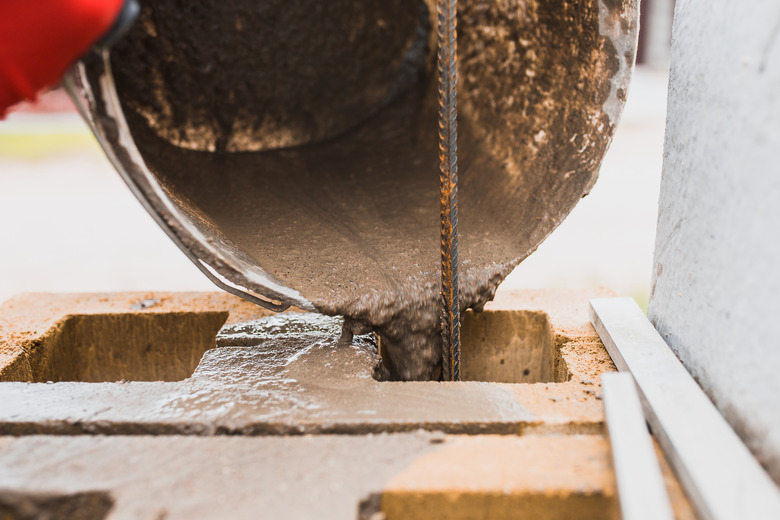What Is Cement Slurry?
We may receive a commission on purchases made from links.
If you've ever watched a construction crew work on a road project or prepare to pave a parking lot, you have probably seen cement slurry. This pourable cement mixture is used worldwide as a strong foundation in swampy areas or anywhere a project would benefit from soil stabilization. When cement slurry is poured onto the wet ground, it binds with the soil to create a hard, smooth, water-resistant layer between the soil and whatever will be built on top.
What Is Slurry?
What Is Slurry?
Cement slurry is a mixture of cement, water, and chemical additives to hold it all together. Properly blended liquid slurry mix is creamy and homogenous. Commercial slurry is typically concrete-gray, but slurry used in home products might be mixed with a pigment.
Slurry thickness might vary according to the construction project. In the drilling industry, for instance, cement slurry is quite runny so that it can easily flow over irregular rock faces. Regardless of the project, cement slurry is always pourable. That is because slurry is typically applied by being pumped into a space or poured down a cement truck chute.
Slurry in Construction
Slurry in Construction
Cement slurry is a common material in many types of construction projects. Civil engineers often use slurry walls to create a barrier between soft ground and structures. When concrete slurry is poured into a mold or flat area and allowed to dry, it gives construction workers a solid, water-resistant foundation on which to build.
Slurry can be helpful in many types of commercial construction projects, including:
- Paving parking lots.
- Pouring large slabs and foundations.
- Repairing roads.
Of course, cement slurry is also useful for residential projects, including:
- Paving driveways.
- Repairing holes in concrete countertops.
- Finishing concrete tables or art pieces.
Making Cement Slurry
Making Cement Slurry
Cement slurry used in commercial construction is best mixed by the pros. But if you want to use cement slurry to fill small holes in a cement table or countertop, look for concrete countertop slurry mix online or at your local hardware store.
Most premade slurry mixes already include the chemical additives to help the slurry hold together. Before adding water to the mixture, carefully read all instructions on the product label. This will help you understand the desired consistency and how to handle the slurry.
Warning
Always wear gloves and work in a well-ventilated area if you are handling cement slurry at home. The chemical components of slurry vary, but it is smart to protect your skin and lungs from potential irritants.
